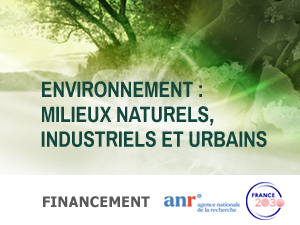Several issues have been identified concerning the recycling of plastics during the analysis of the state of the art. Firstly, the presence of contaminants and the disassembly of complex structures appear as major issue and limit the development of mechanical recycling of plastics. On the other hand, tertiary recycling or chemical recycling is in its infancy and fundamental knowledge in this field is still needed to allow its spreading at different scales. Finally, more transversal approaches including eco-design, flow analysis and stakeholder logics must be considered in all future developments.
The "PLASTICS" project, which is part of the "Priority Research Programme and Equipment" (PEPR) of the "Advanced Technologies & Socio-Economic Analyses for the Ecological Transition in Recycling" field, aims to address these issues by:
- building fundamental knowledge in the field of polymer recycling in order to make the French scientific community in this field one of the world leaders. These targeted projects will be the backbone of large-scale collaborative projects in France and in Europe.
- developing new technologies that create value in France, reduce France's external dependence on resources and develop employment. Various advanced technologies will be considered in the project: 1) solvent extraction (green solvent, subcritical or supercritical conditions); 2) delamination technologies; 3) catalysis for recycling and 4) extrusion/co-extrusion for recycling.
- structuring the French scientific community in the field of materials recycling by integrating social and human, economic and legal sciences, as well as polymerists, engineers, toxicologists and data science. The objective is to have a systemic approach of the possible development of plastic recycling.
The "PLASTICS" project is built on three research axes:
- Axis 1. Contaminants in plastics
- Axis 2. Dismantling and disassembling complex structures
- Axis 3. Tertiary (chemical) recycling
Three methodological axes have also been identified: (i) product design, (ii) characterization tools, methods and modelling and (iii) material flow analysis, recycling schemes and LCA.
It is structured around 5 targeted tasks ((Task 1 - Improving the recyclability of food contact materials / Task 2 - PVC recycling: resin purification / Task 3 - Plastics and new EPR / Task 4 - Improving the recyclability of multilayer films and multicomponent polymer systems / Task 5 - Catalytic pyrolysis. These tasks are based on cross-cutting mobilizable sciences and involve researchers from different research fields (12 partners) who have experience in plastics recycling and recyclability. The project therefore envisages the development of complementary approaches from eco-design to recycling of polymeric materials in a wide variety of applications. The different tasks of the project are designed to improve the recycling rate of plastics (closed loop, primary recycling), to improve the recyclability of plastics (i.e. its ability to be easily recycled) and also to increase the amount of recycled materials that can be incorporated into goods and products.


